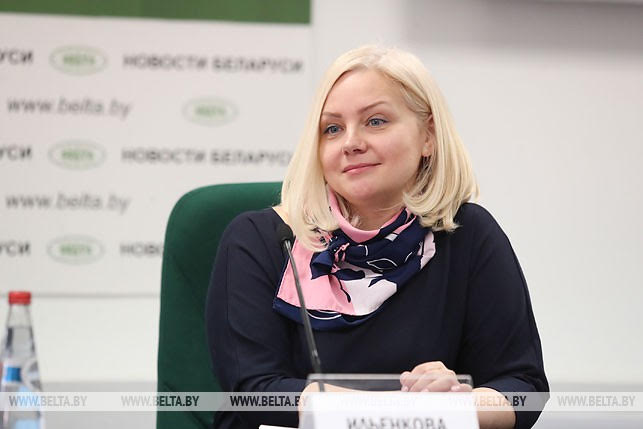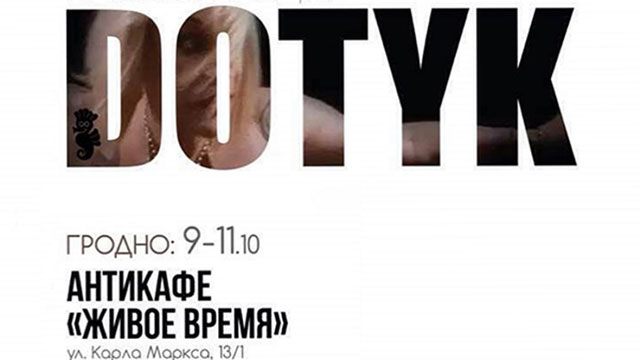
‘People Like Me Are Invisible’. Belarus Runs Out of a Drug that Saves Lives of Dozens of Thousand People
According to activists’ calculations, the supply of one of the drugs is enough for a month, and the planned delivery subject to the pandemic is postponed to June-July. „Salidarnast“ investigated how this happened and what is being done to solve the problem.
The Problem Ignored by Mass Media
In Belarus, the people living with HIV cannot buy drugs for treatment on their own. The patients receive antiretroviral therapy free of charge from their GP. On the one hand, this makes treatment accessible to everyone. On the other hand, the patients are completely dependent on the Ministry of Health.
All that HIV+ people can do in cases of drug interruptions is to leave a message on the Pereboi.by website, developed with the support of the Treatment Preparedness Coalition in Eastern Europe and Central Asia and the Positive Movement NGO. (The Web-resource is not owned by any healthcare institutions or public organization.) More frequent complaints have been received on the Web-site from the patients, residing in the Belarusian regions since recently. They tell that they were not given the “Tenvir EM” medicine, which is needed for their HIV therapy.
The ‘Salidarnasts’ correspondent interviewed a person, whose scheme of HIV therapy includes the drug. Aleh has been on the therapy for three years and he never encountered breaks in its supply. He considers the current situation as a matter of life and death.
“As you know, HIV infection cannot be cured, but while you are taking drugs, your life is no different from the life of an ordinary person, since the virus is suppressed, and immunity returns to normal,” the young man says. “But if you stop taking the pills, the virus will begin to develop at an even greater pace. The principle is the same as with insulin for the people with diabetes,” he adds.
“Let’s imagine that the Ministry of Health hasn’t bought insulin on time. The country will run out of the medicine in a month. And there’s no guarantee that they will be able to deliver a new batch,” Aleh explains.
„Have you Imagined this situation? Well, we are facing a similar problem now,” the guy continues. „Not only me, but also thousands of other people’ find themselves in a state of uncertainty and stress, since Belarus runs out of medicines that safe our lives,” he adds.
The interviewee is convinced that the topic is not covered sufficiently by the media, since the disease is highly stigmatized and HIV+ people remain to be invisible:
“All media would write about breaks with insulin supply. And you can find information about breaks of medicines supply for HIV+ therapy on the niche Web-resources only. Personally, I am eager to cry out loud about the problem, but I can’t even publish a post in Facebook, since only the restricted number of people knows about my HIV+ status. Thus, the people like me are invisible,” Aleh concludes.
As of October 1, 2019, 21,566 people had the registered HIV+ status in Belarus. 1,591 new cases of HIV-infection were registered in the country in the period of January – September 2019. 17.3% of them (276 people) were infected as a result of intravenous drug use. The remaining 81.0% (1,289 people) got infected as a result of heterosexual (77.6%) and homosexual (3.5%) contacts.
Beware: COVID-19. New Challenges for the Vulnerable Population
In order to assess the risk level for HIV+ people during COVID-19 pandemic, we talked to Vera Ilyenkova, the coordinator of the joint United Nations program on HIV / AIDS (UNAIDS) in Belarus.
„We regard COVID-19 as a new dangerous and insufficiently studies disease. We do not have evidence so far that people with HIV are somehow particularly vulnerable compared to other populations. If a person undergoes the ARV therapy, taking the drugs that suppress HIV, and it works efficiently with the immune system functioning normally, the people with HIV will not face more risks than people without HIV,” the expert believes.
UNAIDS considers the minimization of risks for the HIV+ people to be infected with COVID-19 and providing them with access to the services they need as a key solution in the current pandemic situation.
“We sent a letter to the Ministry of Health Care with recommendations to give more ARV drugs to the HIV+ patients at a time. The Ministry forwarded them to its regional and city departments. According to the adopted provisions, the one-time therapy period may be broadened to six months,” Ms Ilyenkova says. “Also, we recommended to conduct the consultations online. The ARV drugs used to be handed over to the patients in one of buildings of the local Hospital for Infectious Diseases, where the COVID-19 infected people are being treated now. In order to minimize the HIV+ people’s visits to the hospital, the ‘Positive Movement’ NGO activists help to deliver the medicines to the people’s homes,” the expert adds.
The „Positive Movement” is one of oldest NGOs that provides help to the people, who face the HIV-infection and drug-addiction. The organization was established on the initiative of specialists from the Republican Center for HIV / AIDS Prevention and the HIV positive people in 1999.
The organization’s mission is to carry out preventive, educational and informational activities, aimed at preventing the spread of HIV infection, as well as minimizing the negative consequences of the epidemic both for society as a whole and for specific populations and individuals.
The UNAIDS representative confirmed that there exists a deficit of certain medicines, which are used for the HIV treatment, in Belarus nowadays. Consequently, the ARV drugs are given to patients for the period of 10 days instead of 6 months. These measures particularly affect the people with HIV, who live abroad.
‘They used to come to Belarus to receive the medicines, and went back afterwards,’ Vera Ilyenkova explains. ‘The people have appeared in a situation, when they can’t come here, and their relatives send the medicines by mail to them. However, it is one case, when they are given the pills for half a year and the other case, when they they get them for 10 days. It means that they have to send express parcels every week.
In connection with this situation, we addressed ‘Belposhta’ and asked them to consider the possibility of sending the medicines to recipients abroad free of charge. However, we haven’t received a reply from them yet. Apparently, they have to agree upon the procedure with the countries, where the parcels will be received. If it doesn’t work, we will look for possibilities to provide subsidies to cover the costs,’ Ms Ilyenkova says.
UNAIDS has set the goal of ‘90-90-90’. It says that 90% of HIV-positive people should know their HIV-status, 90% of people diagnosed with HIV should receive antiretroviral therapy, and 90% of them must have the undetectable blood virus level by the year of 2020. Belarus declared sharing the goal in 2015.
Is COVID-19 the Cause of Supply Disruptions?
We turned to the ‘People PLUS’ NGO that deals with the patients’ monitoring of procurement of antiretroviral drugs, in order to understand the reasons for the expected interruptions in their supply.
The ‘People PLUS’ NGO is a nationwide network of people living with HIV in Belarus. It was established on the base of the Belarusian Community of People Living with HIV and officially registered in April 2018. The association members include the people living with HIV, their family members, and the specialists, who work in the field of HIV. The organization can be joined by any person, who cares about the people living with HIV in Belarus. The organization’s mission is to unite the people affected by the problem and create conditions for a fully-fledged life of HIV-positive people in the society.
According to Anatol Leshenok, Deputy Chairperson of ‘People PLUS’ NGO, the COVID-19 pandemic only exacerbated the existing inefficient procurement system for the medicines, which are used for the HIV-therapy.

Anatol Leshenok. Photo from the interviewee’s personal archive
Reason 1 — the procurement procedure was started too late. According to the expert, basing upon the previous years’ experience, it is ideal to make the following calculations when planning purchases: the procurement procedure takes 2-6 months since the moment, when the electronic auction is announced, and the contract is signed with the supplier; the drug production may take 4-6 months; several months should be left for unforeseen circumstances.
Thus, it is necessary to start the procurement process when there are drugs left in the warehouse for a period of more than a year. The Ministry of Health does not prepare a separate order for the purchase of ARV medicines. It prepares a general annual plan for all drugs, which is approved in early September.
According to the interviewee, ‘there was insufficient supply of some drugs on that date already that caused concern. However, it was seen that the Ministry set a condition in the terms of reference. Correspondingly, e.g. tenofovir / emtricitabine had to be delivered by the end of January 2020.”
Reason 2 – the inefficiency of state procurement procedures. The auctions on the Belarusian Universal Commodity Exchange break down over and over again.
“The main reason for the procurement auctions to break down from year to year lies in the announcement of auctions for the registered medicines. And there exists only one company that has registration for the majority of ARV drugs. Thus, e.g. it is only ‘Akadempharm’ company that has registration for tenofovir / emtricitabine / efavirenz, in Belarus. However, in order for the auction to take place, at least two companies should apply for participation in it.
And only after two failed auctions, you can conclude a contract directly, i.e. purchase from one source. Thus, it took three months to complete the formalities,’ the expert says.
It should be noted that the President of Belarus signed Decree No.499 ‘On Circulation of Medicines’ last year. In line with this document, there’s envisaged the development of provisions for accelerated registration of WHO re-qualified antiretroviral drugs within 30 days.
The admission of unregistered, but HQ-guaranteed drugs to public procurement can positively affect the market.
Antiretroviral therapy / ARV therapy is a method of treating HIV infection, due to which it has moved from the category of fatal to chronic diseases.
Reason 3 — the impossibility to procure medicines for budget money on international markets.
‘The purchase of medicines on international auctions could be a good alternative in this situation. As a rule, the costs for medicines are 20-30% cheaper there. Also, the number of offers is broader and the delivery time is shorter. However, the law on public procurement prohibits the use of this mechanism for procurement from budgetary funds.
When the state program for the development of the pharmaceutical industry was launched in Belarus, it was expected that due to local production of medicines it would be possible to reduce their price and ensure uninterrupted treatment. However, the situation looks diametrically opposite in the case with antiretroviral therapy,’ the interviewee concludes.
Reason 4 — the peculiarities of manufacturing the drugs for ARV therapy by domestic pharmaceutical companies. ‘In fact, they do not produce, but simply pack Indian pills and stick their own labels on them,’ the expert says.
The lock-down period in India lasts till May 3rd. The ‘Cipla’ production company will begin to manufacture the order at full capacity after this date only. Anatol Leshenok got in touch with the Indian company through his colleagues and learned that the drugs that have critical stocks will not be available in Belarus until June-July.
‘Our partners from the Global Network of People Living with HIV and the European AIDS Treatment Group got in touch with the ‘Cipla’ company. The manufacturing plant management confirmed to them the impossibility of supplying the medicine on time. Also, they told that the Belarusian partner had been informed about the situation in February,’ the expert notes. Reportedly, the delay happened subject to the suspension of industrial production in China, where raw materials are purchased by them. ‘Cipla’ is ready to perform the ‘Akademfarm’ order at the moment, but they can’t work at full capacity because of the quarantine in India.
The total number of people living with HIV amounted to 37.9 million in 2018. 24.5 million out of them received the ARV therapy.
The Search for Solutions. Plans 1,2,3 and Minus 1
- Humanitarian Assistance
When the “Cipla” company from India found out that patients in Belarus might be left without treatment, the manufacturer offered to send 6,000 packages of the drug from the warehouse for free. Further, the relay was supported by UNAIDS. According to Vera Ilyenkova, there are good chances for the successful delivery of the drug to Belarus.
‘We shared responsibility: UNAIDS has taken charge of the delivery, and the recipient health care institution in Belarus to be determined by the Ministry of Health Care will deal with the customs clearance,’ she says.
‘We received a letter from the Ministry the other day that it’s a realistic option. If we succeed and do everything as quickly as possible, taking into account the closed borders and reduced cargo traffic, it will be a good example of interaction of different sectors.
However, even if the scheme works, it will not solve the problem completely. It will just allow us to win some time. The batch will be enough for about two weeks, since 12 thousand people need this drug in Belarus,’ Ms Ilyenkova adds.
‘We got in touch with the people, on whom it depends how quickly the humanitarian aid would be legalized, and we noticed their understanding of the whole depth of the problem,’ Anatol Leshenok, Deputy Chairperson of ‘People PLUS’ NGO says. ‘The Center for Expertise promised to issue one-time permit for the batch import within no longer than five days and the Humanitarian Aids Department needed 3-5 days to register its exemption from income tax,’ the expert adds.
2.Emergency Purchase
At the same time, the Ministry of Health announced an emergency purchase of the drug for the amount, which would be sufficient for one quarter of use. According to the statement, the possibility of taking part in the emergency purchase embraces the companies that don’t have the medicine registered in Belarus that expands the list of potential stakeholders. The main condition of the auction is the drug delivery within a month’s term. The winner will be known in the coming days. However, there is no guarantee that the company will fulfill its prompt purchase obligations at that.
- Purchase on International Auction Platform
Another alternative procurement scheme is currently being implemented on an international auction platform by the Republican Scientific and Practical Center for Medical Technologies, Informatization, Management and Health Economics. The state institution is a recipient of Global Fund grants in Belarus.
The Global Fund has been supporting the national HIV / AIDS and tuberculosis programs in Belarus since 2004. The HIV treatment in Belarus was carried out almost entirely at the Global Fund’s expense until 2015. Consequently, the main burden fell on the domestic health system.
It should be reminded that the Belarusian law prohibits public procurement on international market platforms, but there are no such restrictions on purchases for grant funds.
A bid for the purchase of a small batch of a deficit drug was lodged two weeks ago. However, subject to the situation with COVID-19, suppliers have not yet responded to it yet.
- ‘Minus 1’ Scheme
If none of procurement options works, the patients will be shifted to other treatment schemes with the use of medicines, which are available in Belarus.

Aleh Yaromin. Photo from the interviewee’s personal archive
At the same time, Aleh Yaromin, the Chairperson of the Coordination Committee of ‘BelNet Anti-AIDS’ Association notes that a non-motivated replacement of the treatment scheme is highly undesirable, since each replacement of the kind brings the person with HIV one step closer to the final.
The ‘BelNET Anti-AIDS’ Association of Non-commercial Organizations for Counteraction to HIV/AIDS Epidemic is a voluntary organization, which is aimed at efficient counteraction to the HIV-infection distribution in Belarus. It was founded in 2007. The list of its founders includes ‘Cooperation for the Children’s Future’ Local Social Fund, ‘Mothers against Drugs’, ‘Vstrecha’ (‘A Meeting’) Republican Youth NGO, and ‘Vitsiebsk Women’s Club’ NGO.
The association presently unites 17 non-for-profit organizations, which represent all Belarusian regions and implement the programs and projects, which are focused on prevention of HIV/AIDS among various populations as well as directed to providing support to the people living with HIV.
‘I know a lot of HIV-positive people. Some of them are my friends. And I know what a change of therapy means to them,’ Mr Yaromin says. ‘These people perceive the replacement of treatment as a step towards the end of their life, since there are not so many schemes that a person can apply in his or her life. Moreover, not all of them can help, since the body may be resistant to some of them.
There exists a risk that if a person was treated according to one scheme, and then switched to another, the first one would no longer be effective for him or her. Therefore, people with HIV have a morbid fear of such transfers,’ the expert concludes.
The ‘Salidarnasts’ online newspaper will follow the development of events.
Source ‘Salidarnasts’ by Aleh Razhkou (https://gazetaby.com/post/takie-kak-ya-nevidimki-v-belarusi-zakanchivaetsya-/162839/ )
Text translated by gaypress.eu






